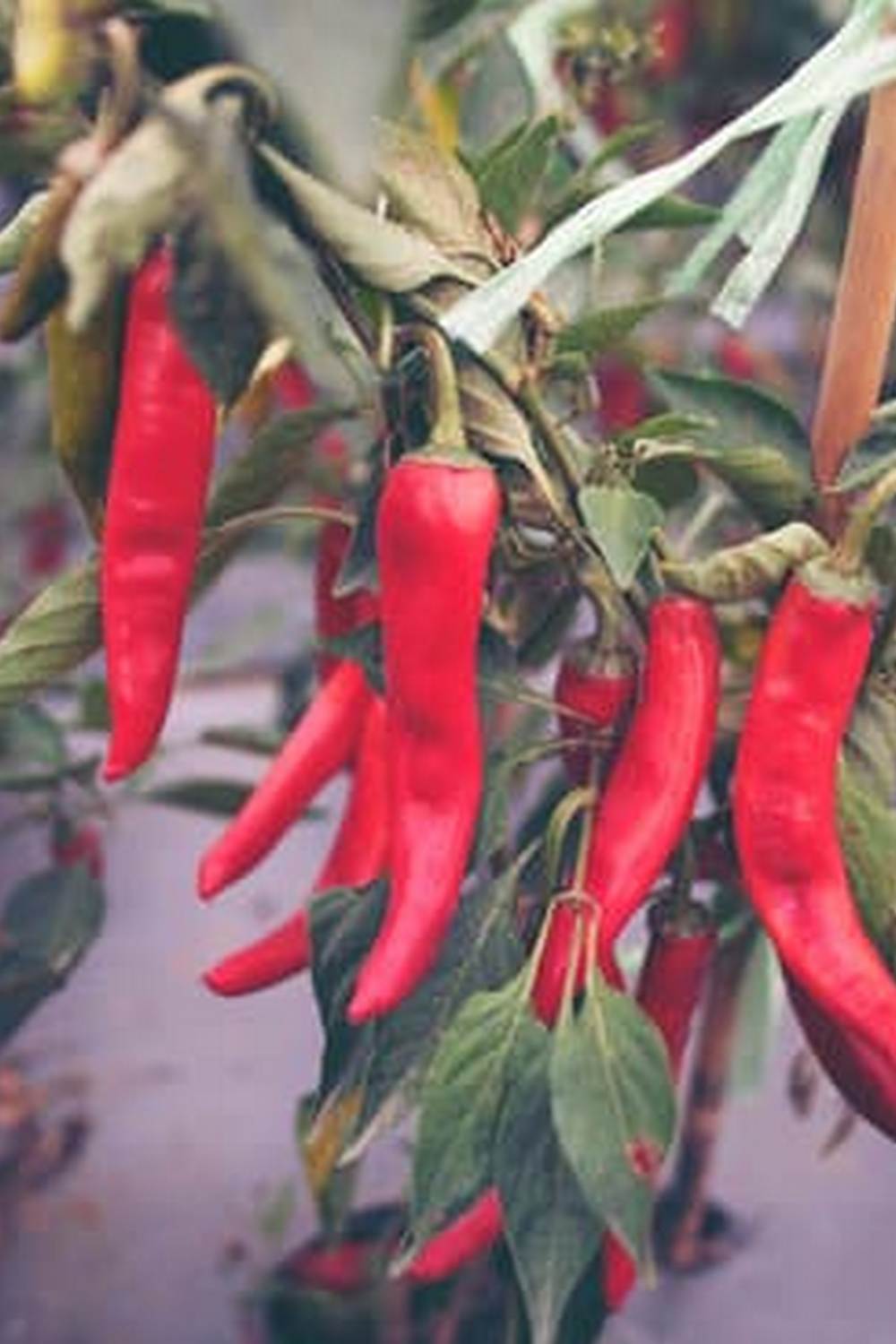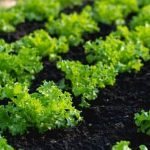Deck container vegetable gardening is a convenient and space-saving way to grow your own fresh produce right on your deck or balcony. Whether you have limited outdoor space or simply prefer the convenience of having your vegetables close by, this method allows you to enjoy the benefits of homegrown produce without needing a large garden plot. By utilizing containers, you can create a thriving vegetable garden in even the smallest of spaces.
One of the key advantages of deck container vegetable gardening is the ability to control the growing environment. Containers offer better control over soil quality, drainage, and sunlight exposure, allowing you to tailor these factors to suit the specific needs of each type of vegetable you choose to grow. Additionally, container gardening can help reduce the risk of weeds and pests commonly found in traditional garden beds.
In this article, we will explore everything you need to know about getting started with deck container vegetable gardening, including selecting the right containers, choosing suitable vegetables, preparing the soil for optimal growth, and managing potential pests and diseases. With some careful planning and maintenance, you can create a bountiful vegetable garden on your deck that not only provides fresh produce but also adds beauty and greenery to your outdoor space.
Benefits of Growing Vegetables in Containers on a Deck
Growing vegetables in containers on a deck offers numerous benefits for both novice and experienced gardeners. One of the main advantages is the convenience it provides, particularly for those with limited space or mobility issues. Deck container vegetable gardening allows individuals to enjoy fresh produce right at their fingertips, without the need for a traditional garden plot. This accessibility also makes it easier to care for and monitor the plants regularly.
In addition to convenience, growing vegetables in containers on a deck can help control soil quality and drainage more effectively. Containers allow for greater flexibility in selecting the type of soil mix suitable for specific vegetables, ensuring optimal growth conditions. Moreover, containers can be placed strategically to maximize sunlight exposure and protect the plants from strong winds or pests.
Furthermore, deck container vegetable gardening provides an opportunity for creative and decorative expression. With a wide variety of container options available in different shapes, sizes, and materials, gardeners can customize their deck garden to complement their outdoor space aesthetically. This not only adds visual appeal but also creates a functional and beautiful living environment that enhances the overall ambiance of the deck area.
| Benefits | Deck Container Vegetable Gardening |
|---|---|
| Convenience | Accessibility to fresh produce |
| Control over soil quality | Flexibility in soil mix selection |
| Creative expression | Customization of deck garden |
Choosing the Right Containers for Your Deck Garden
Container gardening on a deck provides numerous benefits, such as easy accessibility, better control over soil conditions, and the ability to move plants around for optimal sunlight. One of the essential aspects of deck container vegetable gardening is choosing the right containers. When selecting containers for your deck garden, consider factors like size, material, and drainage capabilities.
Size plays a crucial role in container selection for your deck vegetable garden. Larger containers provide more space for root growth and water retention, reducing the frequency of watering. Smaller containers work well for herbs or compact vegetables like cherry tomatoes. Ensure that the chosen containers have sufficient depth for the specific vegetables you plan to grow on your deck.
The material of the containers can also impact plant health in your deck garden. Porous materials like terra cotta allow air circulation to the roots but may require more frequent watering. Plastic containers are lightweight and retain moisture better, making them suitable for hot climates where plants need consistent moisture levels. Whichever material you choose, ensure that it has drainage holes at the bottom to prevent waterlogging and root rot in your deck container vegetable gardening setup.
| Container Size | Recommended Vegetables |
|---|---|
| Large Containers | Eggplant, Peppers, Cucumbers |
| Small Containers | Basil, Thyme, Cherry Tomatoes |
Selecting the Best Vegetables for Container Gardening on a Deck
When it comes to selecting the best vegetables for container gardening on a deck, it’s important to consider the size of the containers, the amount of sunlight your deck receives, and your personal preferences in terms of what you like to eat. Here are some popular vegetables that thrive in container gardens on a deck:
- Tomatoes: Tomatoes are a staple in many container gardens due to their versatility and productivity. Look for compact or dwarf varieties that do well in smaller spaces.
- Herbs: Herbs like basil, mint, rosemary, and parsley are perfect for growing in containers on a deck. They not only add flavor to your meals but also serve as natural pest repellents.
- Peppers: Bell peppers, chili peppers, and sweet peppers can all be grown in containers on a deck. Choose varieties that don’t require a lot of space to spread out.
In addition to these popular choices, other vegetables that can thrive in deck container vegetable gardening include salad greens, cucumbers, radishes, and even small root vegetables like carrots and beets. When selecting what to grow, consider the amount of space each plant needs to spread out its roots and ensure they have enough room to grow properly.
Ultimately, the best vegetables for container gardening on a deck are ones that you enjoy eating and are well-suited to your specific growing conditions. Experiment with different varieties each season to see which ones perform best in your setup. With some trial and error, you’ll soon discover the perfect mix of vegetables for your deck garden that will provide bountiful harvests throughout the growing season.
Tips for Proper Soil and Drainage for Deck Container Gardening
When it comes to deck container vegetable gardening, proper soil and drainage are essential factors for the success of your plants. The type of soil you use in your containers will directly impact the growth and productivity of your vegetables. It is important to choose a high-quality potting mix that is well-draining and nutrient-rich. Avoid using garden soil or topsoil, as they can become compacted in containers and hinder root growth.
Choosing the Right Soil for Your Containers
Look for a potting mix specifically formulated for container gardening, as these mixes are lightweight, well-aerated, and contain the necessary nutrients for plant growth. Avoid soils with added fertilizers or moisture control pellets, as they may not be suitable for all types of vegetables. Additionally, consider mixing in some compost to provide organic matter and improve soil structure.
Ensuring Proper Drainage
Proper drainage is crucial for preventing waterlogged soil, which can lead to root rot and other issues. Make sure your containers have adequate drainage holes at the bottom to allow excess water to escape. Elevating your containers slightly off the ground using pot feet or bricks can also help improve drainage. Finally, avoid placing saucers under your containers that collect excess water, as this can create soggy conditions for your plants.
By paying attention to the soil quality and drainage in your containers, you can create an optimal growing environment for your deck container vegetable garden. Investing time into preparing the right soil mixture and ensuring proper drainage will ultimately result in healthier plants and a more abundant harvest.
Watering and Fertilizing Your Deck Vegetable Garden
When it comes to deck container vegetable gardening, proper watering and fertilizing are crucial components for the success of your garden. Without the right nutrients and hydration, your plants may struggle to thrive in a limited space. Here are some tips to ensure that your deck vegetable garden gets the care it needs:
- Watering: One of the key factors in maintaining a healthy container garden is ensuring that your plants receive an adequate amount of water. Since containers can dry out quickly, especially on a deck exposed to sun and wind, it’s important to check your plants daily for moisture levels. Water when the top inch of soil feels dry to the touch, making sure that water reaches the roots of each plant.
- Fertilizing: Container vegetables need regular fertilization since they have limited access to natural nutrients in the ground. Choose a balanced, water-soluble fertilizer to provide essential nutrients like nitrogen, phosphorus, and potassium. Dilute the fertilizer according to package instructions and feed your plants every 2-4 weeks during the growing season.
Additionally, consider using compost or organic matter as a natural fertilizer alternative that can enrich the soil over time. By incorporating these practices into your routine, you can help your deck container vegetable garden thrive and produce a bountiful harvest.
Remember that each plant has its specific watering and feeding requirements, so monitor how each variety responds to your care routine. With attention to detail and regular maintenance, you can enjoy a successful container vegetable garden right on your deck.
Managing Pests and Diseases in a Container Garden on a Deck
Common Pests in Container Gardens
Pests can be a significant issue in any garden, including those on a deck. Common pests that may target your container vegetables include aphids, caterpillars, spider mites, and snails. These pests can quickly damage your plants if not managed properly. Regular inspection of your plants for signs of pest infestations is crucial to catch and address any issues early on.
Natural Pest Control Methods
One effective method for managing pests in your container garden is using natural pest control methods. For instance, introducing beneficial insects like ladybugs can help control aphid populations. Additionally, you can make DIY organic sprays using ingredients like neem oil or garlic to deter pests from feeding on your vegetables. Always remember to follow the instructions carefully when using any pest control method to avoid harming your plants.
Preventing Diseases in Your Container Garden
Diseases can also pose a threat to your container vegetable garden on the deck. Proper sanitation practices, such as cleaning gardening tools and pots between uses, can help prevent the spread of diseases. Avoid over-watering your plants, as excess moisture can promote fungal growth. Choosing disease-resistant plant varieties and providing adequate air circulation around your containers can also help minimize the risk of diseases affecting your vegetable garden.
Harvesting and Enjoying the Fruits of Your Deck Container Vegetable Gardening Efforts
In conclusion, deck container vegetable gardening can be a rewarding and fruitful endeavor for those with limited space or mobility. By following the tips and guidelines provided in this article, individuals can successfully grow a variety of vegetables right on their own deck. Not only does this method of gardening allow for fresh produce to be easily accessible, but it also provides a therapeutic and enjoyable hobby for many.
As you harvest the vegetables from your deck container garden, take pride in knowing that you have nurtured these plants from seedlings to maturity. The satisfaction of enjoying a meal made with homegrown produce is unparalleled, adding a sense of accomplishment to your culinary creations. Whether it’s juicy tomatoes, crisp lettuce, or vibrant peppers, each vegetable harvested from your deck will be a testament to your dedication and skill as a gardener.
Furthermore, the beauty of deck container vegetable gardening is that it is accessible to beginners and experienced gardeners alike. With the right containers, soil mix, and selection of vegetables, anyone can create a thriving garden right on their own porch or balcony. So why not give it a try? Start planting seeds today and watch as your deck transforms into a bountiful oasis of fresh and delicious vegetables through the art of deck container vegetable gardening.
Frequently Asked Questions
Can You Grow Vegetables on a Deck?
Yes, you can definitely grow vegetables on a deck! Container gardening is a great way to grow vegetables in small spaces like decks. Make sure the containers have drainage holes, receive enough sunlight, and are large enough for the plants to grow.
What Is the Best Container for Balcony Vegetable Garden?
The best container for a balcony vegetable garden depends on the space available and the vegetables you want to grow. Generally, lightweight plastic or resin containers are ideal for balconies as they are easy to move around. Ensure the containers are deep enough for root growth and have proper drainage.
What Vegetables Can Be Grown in Pots Outside?
Many vegetables can be successfully grown in pots outside, including tomatoes, peppers, lettuce, spinach, radishes, and herbs like basil and parsley. These vegetables thrive in containers as long as they receive adequate sunlight, water, and nutrients. Just make sure the pots are big enough for their roots to spread out properly.

If you’re looking to get into vegetable gardening, or are just looking for some tips on how to make your current garden better, then you’ve come to the right place! My name is Ethel and I have been gardening for years. In this blog, I’m going to share with you some of my best tips on how to create a successful vegetable garden.





